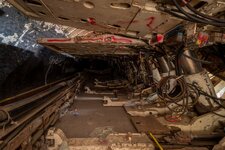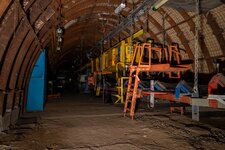History:
The German Ruhr valley is widely known for its heavy industry like steel and manufacturing. What laid central in this industry was the availability of coal stored deep underground. Coal mining became a common practice since the beginning of the 1800s, which kickstarted the German industrial revolution. In 2018 the last coal mine shuttered its doors, which meant a definite end to the 200 year old industry and culture. What remained are many grand abandoned mining complexes and several head frames. What may be overlooked are the training centers which used to train the student miners. These buildings usually contained a realistic replica of the real underground mines.
Back in march I visited this old training center of a huge former coal mining complex. It really was a unique experience to explore such an unusual structure. Truly a one of a kind place.
Photos:






I also made a video report about this unique place:
Thanks for reading and watching!
The German Ruhr valley is widely known for its heavy industry like steel and manufacturing. What laid central in this industry was the availability of coal stored deep underground. Coal mining became a common practice since the beginning of the 1800s, which kickstarted the German industrial revolution. In 2018 the last coal mine shuttered its doors, which meant a definite end to the 200 year old industry and culture. What remained are many grand abandoned mining complexes and several head frames. What may be overlooked are the training centers which used to train the student miners. These buildings usually contained a realistic replica of the real underground mines.
Back in march I visited this old training center of a huge former coal mining complex. It really was a unique experience to explore such an unusual structure. Truly a one of a kind place.
Photos:


I also made a video report about this unique place:
Thanks for reading and watching!
